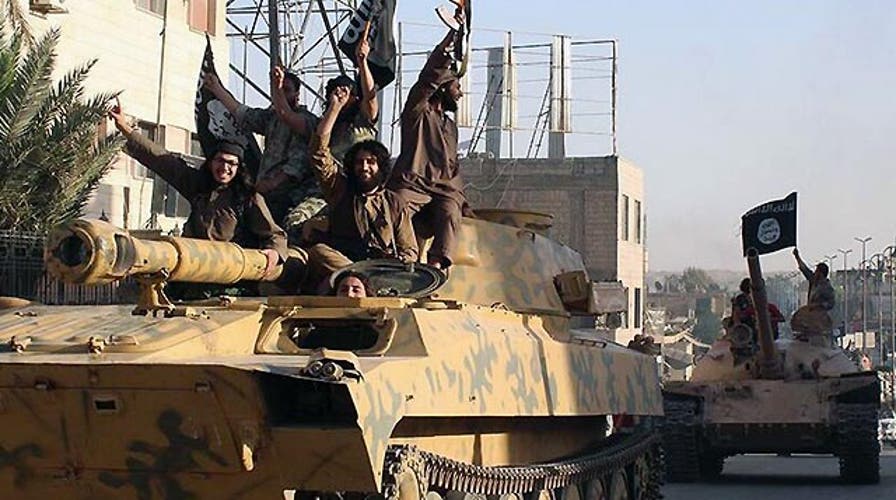Concerns flared Friday that the Islamic State has its hands on chemical weapons, after a senior military official confirmed preliminary tests show traces of sulfur mustard on mortars fired by ISIS militants.
U.S. Brig. Gen. Kevin Killea, chief of staff for the military operations in Iraq and Syria, said the field testing into whether mustard gas was used is not conclusive, so final tests are underway to get the full make-up of the chemicals.
But he said the early tests showed the chemical agent on fragments from mortar rounds fired on Aug. 11 against Kurdish Peshmerga forces in Iraq.
The attack was the first reported incident of ISIS using chemical weapons since the terror group came to prominence last year. Suspicions were first raised last week, as U.S. officials pointed to evidence of possible mustard gas in the attack.
One official who had seen the latest intelligence reports from the region told Fox News last Thursday that the victims had "blisters" matching the symptoms of other victims of mustard gas.
Killea told Pentagon reporters on Friday that Kurdish forces brought the mortar fragments to U.S. forces for testing, so there may be questions about the chain of custody of the evidence.
But senior U.S. officials earlier told The Wall Street Journal that ISIS may have obtained the mustard gas in Syria, where the Damascus government admitted to having large stockpiles of the chemical when it agreed to give up its chemical weapons arsenal in 2013. Another U.S. official left open the possibility that ISIS had taken the mustard gas from old weapons stockpiles that belonged to former Iraqi leader Saddam Hussein and weren't destroyed.
According to the Journal report, U.S. intelligence officials believed ISIS had seized a small amount of mustard gas prior to the Aug. 11 reported attack. But officials fear that ISIS could discover more hidden caches of chemical weapons elsewhere in Syria as troops loyal to Bashar al-Assad lose ground in the country's bloody civil war.
Alistair Baskey, a spokesman for the White House's National Security Council, said last week the U.S. is taking the allegations "very seriously" and seeking more information about what happened.
"We continue to monitor these reports closely, and would further stress that any use of chemicals or biological material as a weapon is completely inconsistent with international standards and norms regarding such capabilities," Baskey said in a statement.
At the United Nations, U.S. Ambassador Samantha Power said last week the U.S. was speaking with the Kurds who had made the allegations to gather more information.
She said that if reports of chemical weapons are true, they would further prove that what ISIS calls warfare is really "just systematic attacks on civilians who don't accord to their particularly perverse world view."
Fox News' Lucas Tomlinson and The Associated Press contributed to this report.





